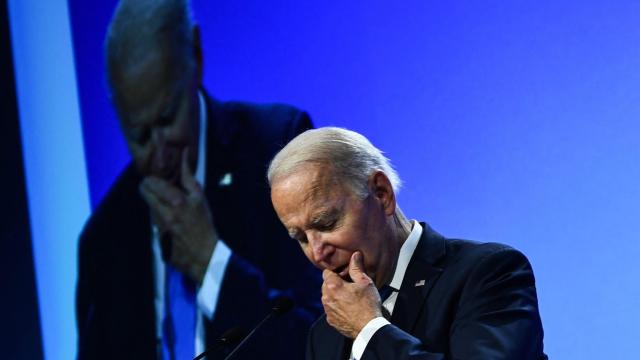COVID-19 caused a dip in greenhouse gas emissions, only for them to rebound in the U.S. in 2021.
That’s according to a new analysis released by the Rhodium Group, which found U.S. greenhouse gas emissions increased 6.2% relative to 2020 levels. That’s still 5% below pre-pandemic levels, though there are signs carbon pollution is increasing rapidly. According to Rhodium’s estimates, emissions appear to have rebounded faster than the overall economy, which is on pace to experience 5.7% year-over-year GDP growth.
That’s important because pandemic-related emissions reductions were significant, with some studies estimating that lockdowns to control the spread of covid-19 may have led to the single largest annual fall in emissions ever recorded. Now, however, as more countries begin to ramp their economies up, emissions are ticking back up. That could spell doom for the world’s climate goals and shows the challenges for the Biden administration that has talked up its climate bona fides but failed to deliver the near-term emissions cuts needed.
So what’s causing this emissions resurgence? In short, coal and ground transportation.
Specifically, coal-fired power generation increased 17% from 2020, an uptick due in part to pandemic-related disruptions in natural gas production. To put that figure in perspective, that 17% increase marked the first annual increase in U.S. coal generation since 2014. Coal notably stood out in the electricity sector that, as a whole, saw its emissions increase 6% from 2020. Overall, electric power emissions were still 4% lower than they were prior to the pandemic.
The transportation sector, meanwhile, was responsible for the single largest increase in U.S emissions, rising a staggering 10%. (Its emissions had declined more than 15% in 2020 compared to 2019 level.) The rise was driven in part by an increase in freight traffic for everything from deliveries of goods to restaurants and small businesses to a record number of online shopping packages arriving on consumers’ doorsteps.
Demand for consumer goods during the last year was so high that emissions from freight actually surpassed pre-pandemic levels. Transportation is the biggest share of American carbon emissions.
It’s worth taking a moment to underline just how significantly the pandemic’s early months cut into emissions. Daily emissions plummeted 17% in April 2020 compared to the average levels the year prior due to lockdown orders and stay-at-home orders. Later that year, a study conducted by The University of California, Davis looking at traffic light data determined every U.S. state had seen a 60% reduction in local travel, in effect reducing the transportation industry emissions by 13% compared to pre-pandemic levels. Overall in 2020, the Rhodium analyses estimate the U.S. had reduced emissions levels by 22.2% compared to 2005 levels. Just one year later though those emissions cuts had dipped to 17.4% of 2005 levels.
The rise is a particularly big blow to meeting a goal set by President Joe Biden to reduce emissions at least 50% below 2005 levels by the end of this decade. That goal is tied to the Paris Agreement, and the U.S. risks losing credibility if it can’t bend the emissions curve in the coming years.
The Rhodium Group analysis will likely further muddy the Biden administration’s already lacklustre climate report card roughly one year after taking office. The Biden campaign ran on a platform prioritising climate change policies, but has so far chosen to backtrack on its promises to end ban new oil and gas leases on public lands fossil fuel leases and failed to get Congress to pass the climate-laden Build Back Better Act. And while the administration did push the U.S. to rejoin the Paris Agreement and has set ambitious targets to reduce overall emissions, it’s simultaneously drawn criticism from climate activists for decisions that could spike carbon emissions even further.
